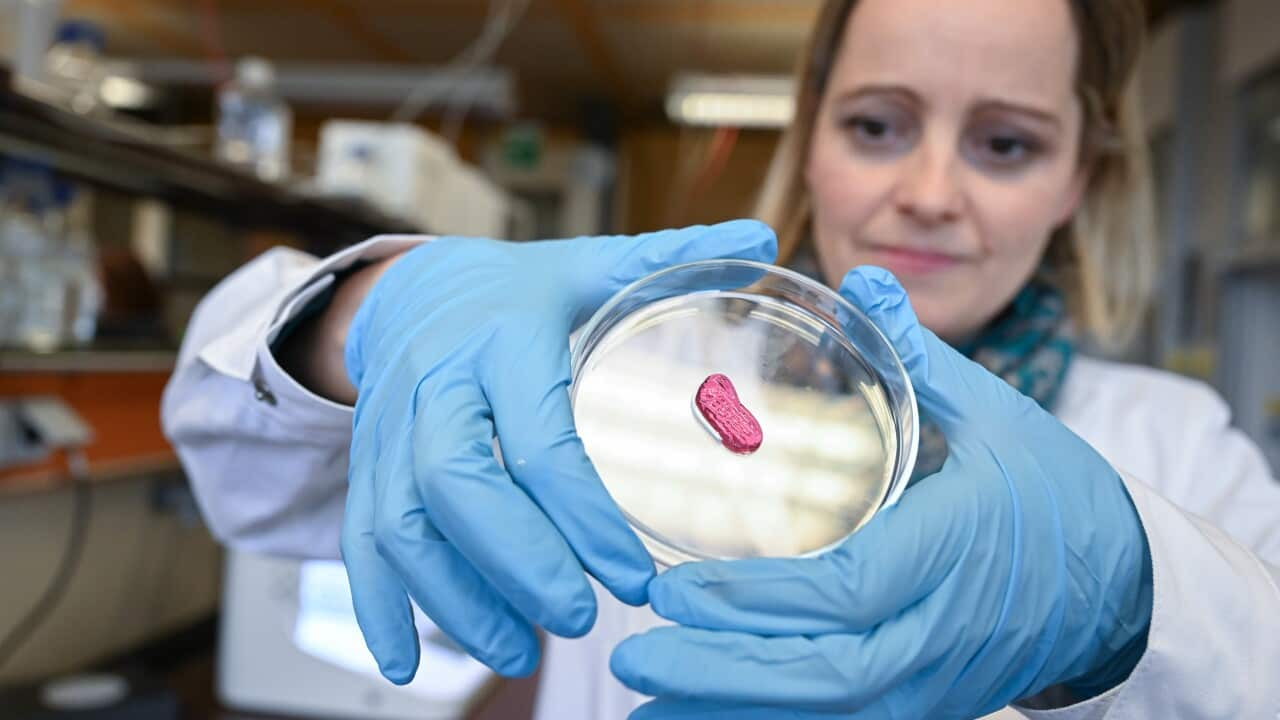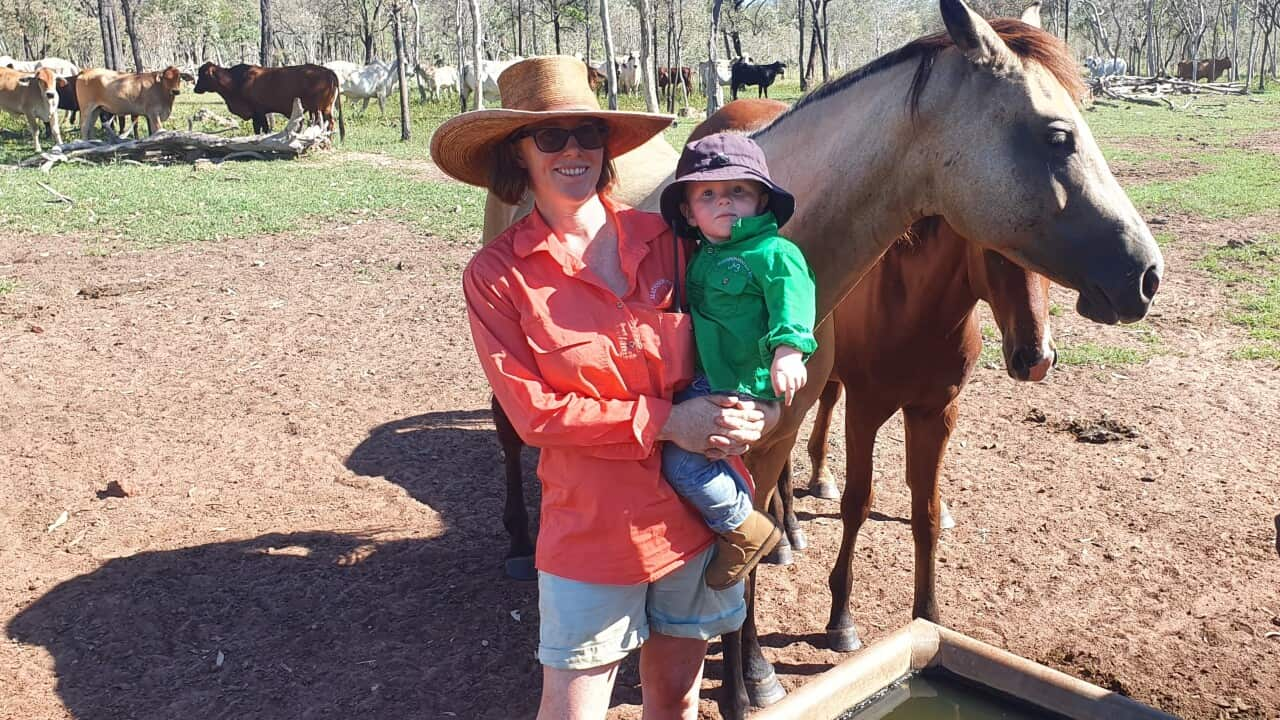Key Points
- Australia's food regulator is assessing the first-ever cultured meat application by a Sydney-based producer.
- Vow Foods says it wants to be producing hundreds of thousands of tonnes of meat by 2030.
- NSW Farmers says there are genuine concerns about the safety of synthetic food.
In a warehouse in Sydney, producers are trying to grow enough meat to feed tens of millions of people a year, but there are no animals here - instead, scientists are growing the "cultured" meat from cells.
But there's a glitch, it's still illegal to sell the , something Vow Foods wants to change with a bid to grow quail for consumers, in a first-ever cultured meat application being assessed by the food regulator.
"The conclusion that Vow-cultured quail is safe for human consumption is based on a thorough safety assessment," the company says in its application to Food Standards Australia New Zealand.
While Vow is Sydney based, it's ambitions are global - the start-up wants to be producing by 2030.
"By the end of the decade we want to be producing on a similar order of magnitude to the Australian beef industry, to export to global markets," says Vow head George Peppou.
So why quail? It's easy to grow for one and tastes really good, says Mr Peppou.
The company also has its eye on seafood and other game animals.

Vow Foods CEO George Peppou wants to be mass producing cell-based meat by 2030. Source: AAP / Bianca De Marchi
"We have a long way to scale until we're even producing as much as a medium-sized commercial farm," Mr Peppou says.
"What we're doing is so difficult, it's almost not worth being anything other than ambitious," the start-up founder tells AAP.
But ambitious might be an understatement, with plans to increase current production from tens of kilograms of meat a day, to 200 kilograms a week by June.
READ MORE

Factbox: GM foods in Australia
And it's not without its opposition.
NSW Farmers says there are genuine concerns about the safety of synthetic food, because it's often touted as a replacement for natural food.
"We're talking about what's real – food grown by farmers – and the artificial 'alternative' that's grown by a scientist," says head of policy and advocacy Annabel Johnson.
"People need to know that the food they're feeding their families is safe, and certainly the natural foods farmers have grown for thousands of years are safe to eat," she says.
Industry research body Meat and Livestock Australia also has major reservations about both cell-based and plant-based industries.
"I think the issue we broadly have is that they promote themselves dishonestly by denigrating our products," says MLA head Jason Strong.
"By criticising the environmental credentials, nutritional values, sustainability of our products, with either no facts or unfounded claims," Mr Strong says.
Mr Peppou says the opposition to cell-based meat is in part driven by Australia's deep cultural links with farming.
"Anything new, tends to be met with resistance, and we're no exception to that," he says.
"I'm sure there will be objections ... fortunately the food regulator is really only interested in risk assessment of a food and does that present a risk to human health?"
The cell-based meat industry is gaining pace globally.

A woman stands in front of a blackboard explaining the production of so-called in-vitro meat, in Münster, Germany, on 30 July 2020. Source: Getty / Dpa
Then in November 2022, the US Food and Drug Administrator gave approval for living cells from chickens to be used to grow food, while other countries including Japan have indicated support for cell-based meat.
The public will be able to make submissions to the Australian food regulator from August, and if approved the product could be on the shelves by mid-2024.












